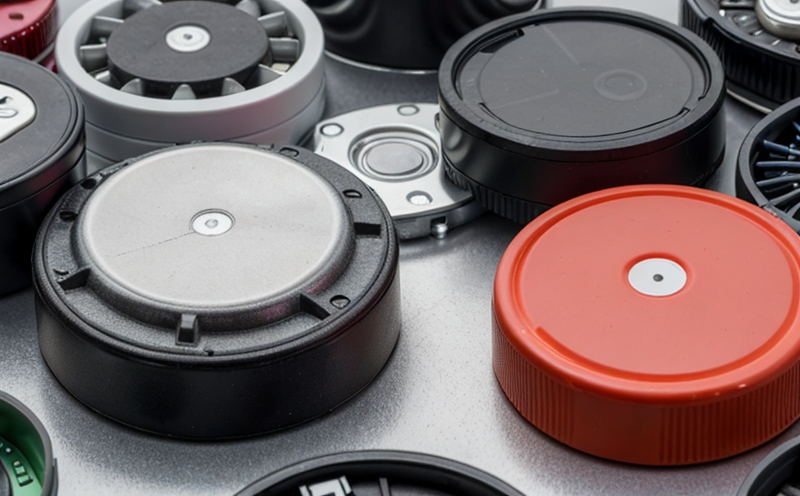Capacity verification for batteries used in consumer electronics
Capacity Verification for Batteries Used in Consumer Electronics Ensuring Safety, Efficiency, and Quality
As the world becomes increasingly dependent on consumer electronics, the importance of reliable and efficient batteries cannot be overstated. From smartphones to laptops, tablets to smartwatches, batteries power our devices and enable us to stay connected and productive. However, as these devices age or are subjected to various environmental factors, battery performance can deteriorate, leading to reduced capacity, shorter lifetimes, and even safety risks.
This is where Capacity Verification for Batteries Used in Consumer Electronics comes into play a laboratory service provided by Eurolab that helps businesses ensure the quality and reliability of their batteries. In this article, well delve into the importance of Capacity Verification, its advantages, and why its an essential tool for companies operating in the consumer electronics industry.
What is Capacity Verification for Batteries Used in Consumer Electronics?
Capacity Verification is a laboratory-based service that assesses the battery capacity, also known as discharge capacity or usable energy, of batteries used in consumer electronics. This involves testing individual cells or entire packs to determine their ability to hold and deliver electrical charge under various conditions.
The primary goal of Capacity Verification is to evaluate the batterys performance, identify potential issues, and ensure that it meets the required standards for safety, efficiency, and quality. By verifying capacity, businesses can
Prevent Battery-Related Failures Reduced capacity can lead to unexpected device shutdowns, data loss, or even fires. Capacity Verification helps identify battery-related failures before they occur.
Improve Device Lifetimes Properly functioning batteries contribute to longer device lifetimes and reduced maintenance costs.
Ensure Regulatory Compliance Manufacturers must comply with industry standards and regulations, such as UL (Underwriters Laboratories) or IEC (International Electrotechnical Commission) requirements. Capacity Verification ensures that batteries meet these standards.
Benefits of Using Capacity Verification for Batteries Used in Consumer Electronics
Here are the key benefits of using Capacity Verification for batteries used in consumer electronics
Ensures Battery Reliability Verifies battery capacity to prevent device failures and ensure seamless operation.
Reduces Maintenance Costs Prevents unnecessary repairs, replacements, or recalibrations by identifying potential issues early on.
Improves Product Quality Enhances product reputation by ensuring batteries meet required standards for performance and safety.
Increases Customer Satisfaction Delivers reliable products that meet customer expectations, reducing returns and complaints.
Supports Warranty Claims Provides evidence of battery performance, helping businesses to resolve warranty claims efficiently.
How Does Capacity Verification Work?
Capacity Verification involves a series of laboratory-based tests, including
Electrochemical Impedance Spectroscopy (EIS) Evaluates the batterys internal resistance and electrolyte properties.
Cycle Life Testing Simulates repeated charge/discharge cycles to assess battery endurance.
Rate Capability Testing Assesses the batterys ability to deliver power under various load conditions.
Depth-of-Discharge (DOD) Testing Evaluates the batterys ability to operate within specified DOD limits.
QA Frequently Asked Questions About Capacity Verification for Batteries Used in Consumer Electronics
Q What types of batteries can be tested using Capacity Verification?
A Eurolab provides capacity verification services for various types of batteries used in consumer electronics, including lithium-ion (Li-ion), nickel-cadmium (Ni-Cd), and lead-acid batteries.
Q How long does the testing process take?
A The duration of testing depends on the specific battery type, size, and complexity of the test. Typically, Capacity Verification tests can be completed within 1-5 days.
Q What are the benefits of using Eurolabs capacity verification services?
A Our expert technicians and state-of-the-art equipment ensure accurate and reliable results, while our ISO/IEC 170252017 certification guarantees compliance with international standards for testing laboratories.
Q Can Capacity Verification be performed on batteries already installed in devices?
A Yes, Eurolab offers battery removal services to safely extract and test batteries from devices without compromising their integrity.
Conclusion
Capacity Verification for Batteries Used in Consumer Electronics is a critical laboratory service that helps businesses ensure the quality and reliability of their products. By verifying battery capacity, companies can prevent device failures, reduce maintenance costs, and improve product quality. Eurolabs expertise in Capacity Verification ensures accurate and reliable results, helping businesses meet industry standards and regulations.
In todays fast-paced consumer electronics market, manufacturers must prioritize quality and safety to remain competitive. Capacity Verification is an essential tool for achieving these goals. Contact us at Company Name to learn more about our laboratory services and how we can help you ensure the reliability and performance of your batteries.




